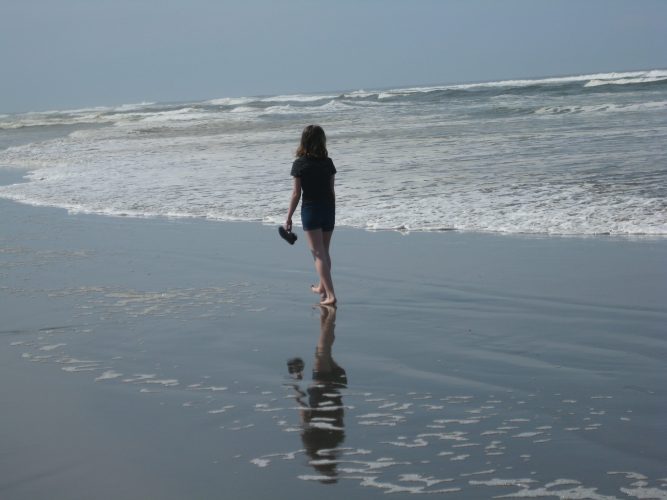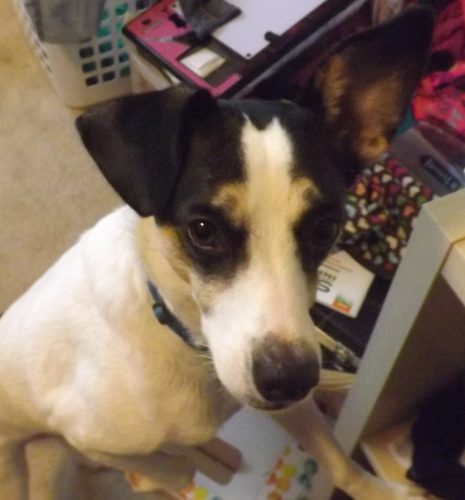
The Imaginary Family
How do you get a child to talk about what is upsetting them when they probably do not even realize what is upsetting them – that the issue is so deep into their subconscious that they cannot see it, even if you point it out?
Pop Tart has a best friend. That best friend lives just a few houses down the street. She is a good kid. We like her. But the friendship we do not like that much. Toxic is not the right word. Intense. Intense is the right word. If we let them, the girls will hang out with each other to the exclusion of all others. The one time they tried to include a third in their group, the relationship really did become toxic, leading Pop Tart’s friend to harm herself and blame Pop Tart. (For the record, it was not a serious injury, but it did cause serious concern.)
The school ended up instituting a “friendship agreement” which was really an agreement on how not to be friends while at school. And for a while, Pop Tart did not hang out with either other girl, and they did hang out together. But something happened between Pop Tart’s best friend and the other girl, and then Pop Tart and her best friend were back together again.
We have tried having the rule that Pop Tart cannot hang out with BFF two days in a row. She has to play with some other kid in between play dates with BFF. And for a while that worked. But then we became lazy, and tired of fighting about it, and let them hang out all the time. And the intensity leads to Pop Tart in tears once or twice a week.
And the problem is not actually something BFF is doing. The problem is BFF’s family life. And I do not think Pop Tart consciously realizes it.
Pop Tart was born when her mother was 16. She has two younger brothers, fairly close to her in age, and then a much younger sister. Pop Tart was responsible for taking care of her younger siblings.
BFF’s grandmother is only a few years older than me. I do not know how old her mother was when she was born, but she was quite young. BFF has two younger brothers, not super far in her from age, and then a much younger sister. BFF often has to spend the day watching her younger siblings.
See the parallels?
Pop Tart sees BFF’s family, and this is what she imagines her life would have been like if she had not been removed from her mother. Now, this forgets the fact that neither of her brothers was living with their mother and, in fact, neither have ever entered state care. It forgets the fact that Pop Tart’s mother struggled with addiction. It ignores the fact that Pop Tart was 6 years old, left alone with a 6 month old, a 3 year old, and 5 year old, while BFF is 12, and is in charge of her three younger siblings, but with an adult (generally grandfather or uncle) also home. But of course Pop Tart forgets those things. Her birth mother is a mythical creature. She can, if pressed, realize that her mother had problems, but only if pressed, and it quickly goes away.
So Pop Tart hangs out with BFF, helping watch the younger kids. And Pop Tart sees the family she thinks she was supposed to have. And she imagines herself part of this family. And then something happens, something that reminds her she is not part of that family. This is not anyone being mean. It is generally a family event they plan that Pop Tart is not invited to. And that is normal. That is right. Pop Tart is NOT part of their family. And their family needs time without Pop Tart around, just as our family needs time without BFF around.
But Pop Tart does feel it that way. Here is this family that is the family she was supposed to have, and here they are telling her she is not a part of their family. Can you say trigger?
But Pop Tart is 12 on a good day. She is not capable of realizing this is the issue, at least not consciously. Which means she is not capable of working on this consciously with her therapist or with us. She rationalizes her feelings and just says she wishes she could have done activity X, or she wants to hang out with BFF.
And part of me wants to let it lie, or at least let it lie while putting the rule back in place that she needs to hang out with someone other than BFF, at least once in a while. But it is starting to cause problems hanging out with her actual sister.
Now, play dates with her sister are bound to get a little more boring for her right now, anyway, as Pop Tart is 12 and her little sister is 7. They do not have a lot in common, do not want to play the same games, etc. Finding activities for us all to do together is a challenge and one we parents gladly accept.
But hanging out with her sister is also a reminder of how her life actually is. It does not let her pretend that she is part of a different family. She does not get to be the boss of her sister – parents are always around, and different parents for each of them. They live in different houses, have different lives.
And so, she would rather hang out with BFF. And she gets upset when BFF’s family does something without her, when real life intrudes on her imaginary family.
But she is in no way ready to deal with this yet. And she may never be. Just like she may never be able to come to grips with her mother’s addictions, with the reasons she and her sister were removed from their mother’s care.
All kids imagine sometimes that they are adopted, that they have another family out there that would let them do what they want, when they wanted, a family they could run away to and all their problems would be solved. All kids imagine this. Pop Tart actually has another family, and while she is old enough to remember some of the problems, she still loves her mom the way all kids love their moms before they are old enough to see their mom’s faults. And now, she has a family, just down the street, that has the life her imaginary biological family has.
And here we are, at home. The “real” family. The family with rules, with bed times, with chores and homework. The family that does not let her be the boss of other kids. We are the reality break.
And she loves us. And she realizes on some level that she does not actually want a family with three younger siblings because she likes all the attention she gets from us. On good days, she knows she is where she needs to be.
But the imaginary family still lives just down the street.



One Comment
Crystal
Holy hell. The fact that you can see the issues even though she can’t is awesome, but I’m sorry for everybody involved. Yeah, everyone has at some time wanted to be a part of a different family, but it has to be emotionally challenging to watch your daughter deal with it all. Good luck and best wishes!!!